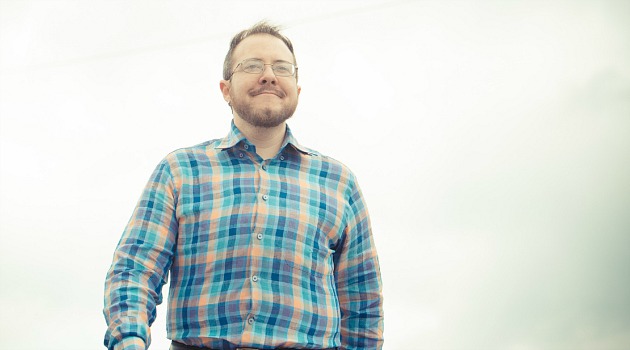Naomi Zeveloff
Jewish Daily Forward
August 16, 2013
Growing up female and Methodist in the Midwest, Kadin Henningsen was inexplicably drawn to Judaism, empathizing with characters in Holocaust documentaries on TV.
Then in junior high, Henningsen had a revelation while reading Chaim Potok’s “The Chosen”: “I remember thinking I was supposed to grow up to be a Jewish man.”
Less than two decades later, the premonition came true. At 30, Henningsen transitioned genders and converted to Judaism, all within the span of a single summer. “It was a circular process,” he said. “The more entrenched I became in Jewish knowledge, the more comfortable I started to feel with my masculine identity.”
Henningsen’s conversion certificates were the first documents that referred to him with male pronouns. Today, at 35, he is an active member of Beth Chayim Chadashim, a Reform congregation in Los Angeles that bills itself as the world’s first lesbian, gay, bisexual and transgender synagogue.
Henningsen is not alone in his trajectory. Transgender converts constitute a vocal — and some say growing — minority within the small community of LGBT Jews. For some trans converts, or, as many call themselves, “Jews by choice,” conversion was intrinsically linked to gender transition; the process of soul-searching unearthed one truth after another. For others, Judaism was a lifeline during a time of immense vulnerability and isolation. When friends and family members grew distant, transgender individuals found community at the Hillel House or at the local synagogue.
Some trans converts came from strong faith backgrounds and wanted to supplant their childhood religion with one that would be more accepting of their gender identity. Others came to Judaism from a nonreligious background.
“In one way it is a search for personal authenticity,” said Rabbi Jane Litman, a congregational consultant with the Reconstructionist movement who has converted close to two dozen trans Jews. “People who are transitioning in terms of gender are looking for a way to feel most authentically themselves.”
Jesse Krikorian, a 24-year-old engineer, began exploring Judaism as a senior at Swarthmore College, shortly after he began his gender transition. Unhappy with his decision to take hormones, his parents threatened to withdraw their financial support, he said. “I wasn’t sure what was going to happen, and there was a lot of chaos and uncertainty,” he recounted. “I found that I really needed community and ritual and all those good things.”
Though he was raised Methodist, Krikorian was always interested in the Old Testament. A visit to the campus Hillel confirmed that Judaism might provide him with the community he was seeking: The Hillel director at the time, Jacob Lieberman, was also a transgender man. “I didn’t have any questions of whether I could be trans and Jewish,” he said. “It was really clear that the combination could work.”
Krikorian attended Friday night services at Hillel each week and began to recite a prayer about transformation each time he bound his chest to appear more masculine. After graduating from college, he moved to Philadelphia. There he joined Kol Tzedek, a Reconstructionist synagogue. He converted in June, and hopes to go to rabbinical school.
“Being trans, I had to look really deeply into myself and be courageously honest about what I saw and what I wanted, even though I knew it wasn’t going to be an easy path,” he said. “Once you start making those decisions, you want to keep making those decisions.”
Duncan McCullough, 31, has a similar story of finding community in a time of deficit. In his case, it wasn’t Friday nights at the Hillel House that led him to convert, but Saturday morning services at the lone synagogue in Jackson, Miss. As a senior in college, McCullough came to Beth Israel by way of a course on Judaism, taught by the synagogue’s rabbi, Valerie Cohen. Two years earlier, he told his parents in a letter that he identified as male, not female; the admission left him feeling unmoored. “I felt I needed something to ground me,” he said.
Saturday mornings at Beth Israel were full of rigorous debate. “There were free bagels, and discussion, which I was good at,” he said. Soon enough, McCullough — who at that time had not yet transitioned — was a fixture at services. But then, an emotional breakdown spurred him to seek out therapy; he chose a counselor far from home, in New Orleans, and moved out of his parents’ house.
When he returned to Jackson, he was living as a man. Hormones had deepened his voice; he grew hair on his face and developed acne. Even though he knew that Cohen would understand about his transition, he worried about the rest of Beth Israel. “I didn’t want to create problems in such a small community,” he said. “I just wanted to be able to go to synagogue.”

